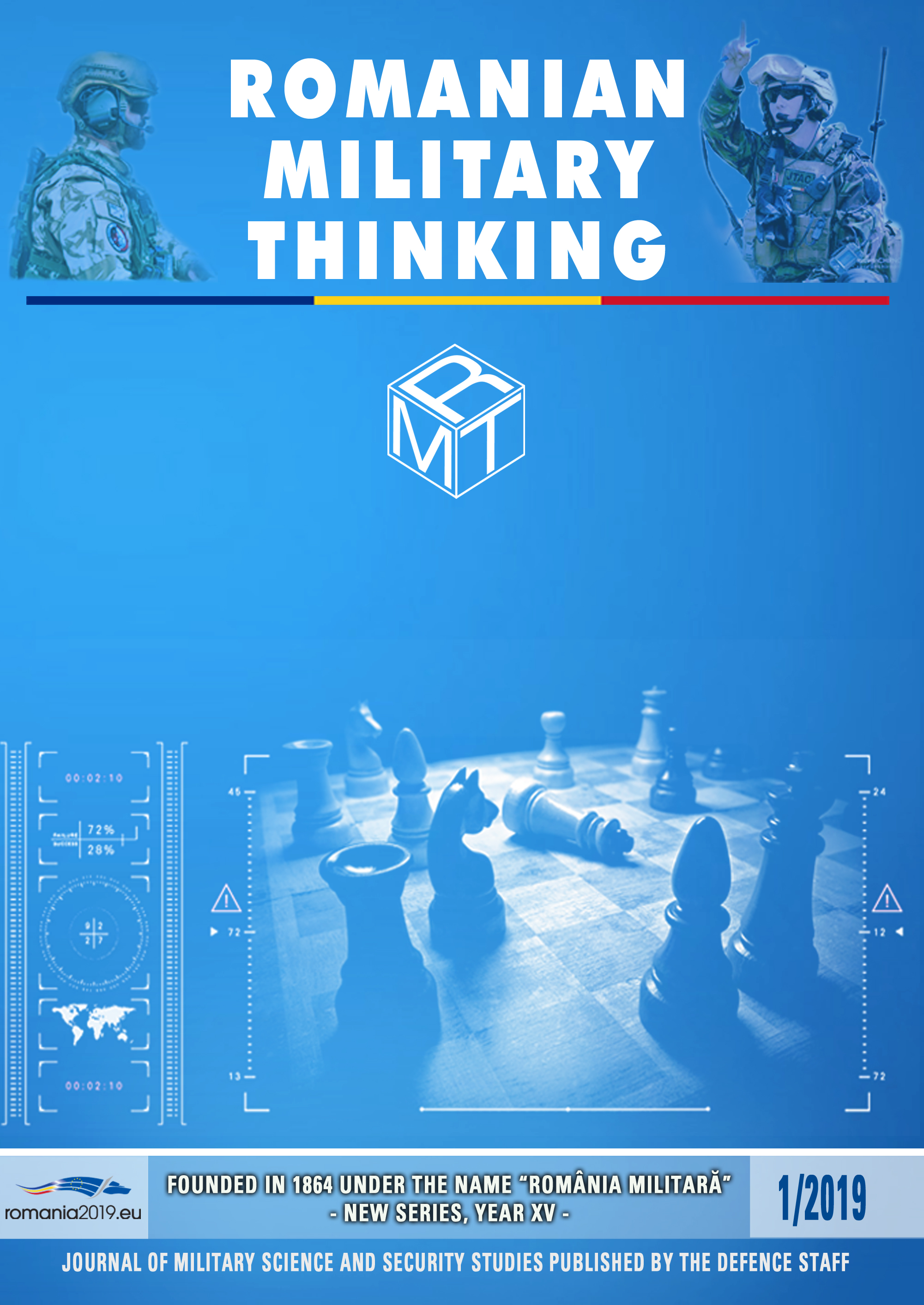ROMANIAN MILITARY THINKING FOLLOWING THE GREAT UNIFICATION
ROMANIAN MILITARY THINKING FOLLOWING THE GREAT UNIFICATION
Author(s): Adrian LesenciucSubject(s): Military policy
Published by: Centrul tehnic-editorial al armatei
Keywords: interwar period; Romanian military thinking; French school; Clausewitzianism; Soviet school;
Summary/Abstract: The paper presents the evolution of Romanian military thinking following the Great Unification and the relations between Romanian and European strategic thinking schools. The Romanian military thinking in the interwar period is symptomatic for the Romanian school of military sciences, suggesting the alignment with the ideas of the French school, declining as a model for the official projects of the European armed forces at that particular time. Moreover, the increasing interest in the particular at the expense of the general, the focus on the tactical aspects, the lack of a unitary project as well as a doctrinal cohesion resulted in the works having the potential to coagulate the Romanian military thinking (such as those of Mircea Tomescu) failing to produce the expected effect. Under such circumstances, the Romanian military thinking remained, in some aspects even acutely, counter-current. The present paper also calls attention to the counterfactual perspective of the possible evolution of the Romanian military thinking school, considering it would not have been disbanded immediately after the Second World War by the Soviet school.
Journal: Romanian Military Thinking
- Issue Year: 2019
- Issue No: 1
- Page Range: 104-113
- Page Count: 10
- Language: English

